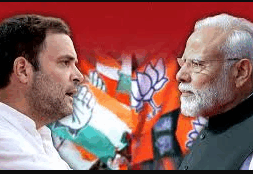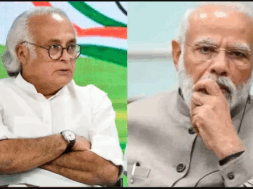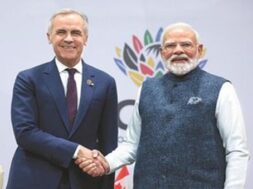
Investments: Japan signs chip pact, may invest Rs 2.95 trn in India across sectors
Virendra Pandit
New Delhi: Japan is looking at investing around five trillion yen (INR 2.95 trillion/USD 3.5 billion) in India across various sectors, including steel, Union Minister for Steel and Civil Aviation Jyotiraditya Scindia said on Thursday.
The two countries have signed a Memorandum of Cooperation (MoC) in semiconductors focused on key areas like research and development (R&D), manufacturing, design, and talent development.
They signed the MoC during a meeting of top Indian government officials with a Japanese delegation led by Nishimura Yasutoshi, Japan’s Minister of Economy, Trade and Industry, the media reported.
“We had a very detailed discussion…about the common strategies that we can develop in terms of the path forward, exchange of best practices, new technologies, Japanese investment in India, which would be close to 5 trillion yen…over the next few years, in different sectors, including steel,” Scindia said.
Union Minister for Railways, Communications, and Information Technology Ashwini Vaishnaw said the two countries will soon create an implementation organization under the new pact for industry and government-level collaboration. Rapidus, the Japanese government-backed chipmaker, will be a major element of this partnership.
“Everybody wants a resilient semiconductor supply chain and in this, India and Japan are very important partners. The focus of this partnership is on finding complementary strengths of both the countries,” he said.
The announcement comes days after India and the US signed a Memorandum of Understanding (MoU) on semiconductor supply chain and innovation. Both Indian and Japanese governments have launched schemes to incentivize local manufacturing of semiconductors.
“The semiconductor industry will require a huge amount of talent and significant growth in multiple locations in the world. Japan sees India as a partner where complementary strengths can be used,” Vaishnaw added.
India’s USD 10 billion semiconductor production-linked incentive (PLI) program offers a 50 percent incentive on the project costs for setting up a chip plant. On the other hand, the Japanese government had in 2021 announced a USD 6.8 billion scheme to boost its domestic chip industry.
Scindia said India and Japan will work closely with regard to the steel sector and said the delegation discussed tremendous growth prospects in India’s steel sector, whose capacity is likely to grow from 160 million tons (mt) now to 300 mt by 2030.
“Reaffirmed our commitment towards the Make in India program, along with partnerships in new domains, such as decarbonization, green steel production, and greater energy efficiency in the steel sector. Confident that the historical ties between the two countries will only see further strengthening in the future,” Scindia tweeted.
Later, in a statement, the steel ministry said cooperation in the steel sector and decarbonization issues were discussed in the meeting.
Recognizing the recent expansion of investment activities in India by Japanese steel producers, the two sides will support the cooperation between their public and private sectors for appropriate development of the global steel industry, it said.
“Both sides affirmed the importance of cooperation for achieving their respective net zero goals, recognizing the heterogeneity of steel decarbonization pathways. In order to continue such cooperation, both sides decided to hold further discussions through the Steel Dialogue and other cooperation programs,” the statement said.














